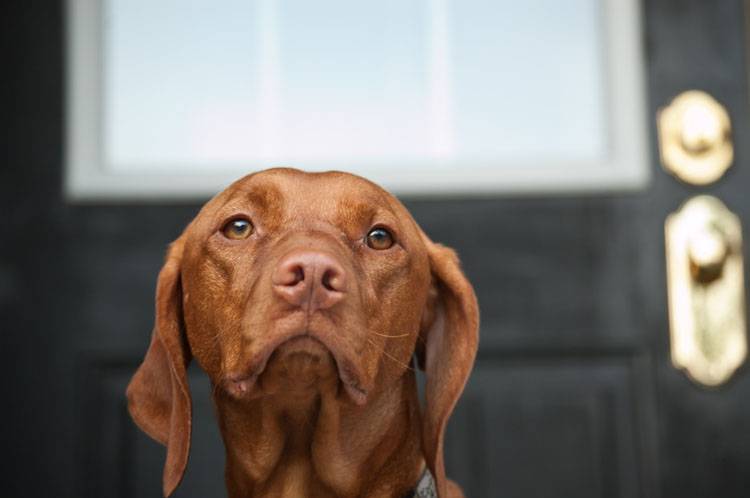What to Do When Your Dog Has Separation Anxiety
Separation anxiety is one of the most difficult problem behaviors to address. It’s also extremely hard to witness. Not only is it a problem for the owner, but the dog is affected negatively as well. The levels of separation anxiety vary greatly, as do the symptoms. It’s important to treat the anxiety as soon as possible, as your dog could potentially hurt himself.
Canine Separation Anxiety Symptoms:
- Barking or howling: This could be a symptom if the barking or howling is not triggered by any other stimuli.
- Chewing or digging: Some dogs will chew or dig at doorways when left alone. This could result in injuries, such as broken teeth or nails.
- Escaping: This could occur when your dog is left alone. He may try to dig at or escape through windows. This is another instance where the result can be broken nails or scraped paws.
- Pacing: If you notice your dog pacing in a specific pattern, this may be the result of separation anxiety.
If your dog is doing any of the above behaviors when you’re present, the cause could be something other than separation anxiety. To resolve the issue of separation anxiety, you must be patient. Treatment is a long process that takes dedication and understanding.
How to Cure Dog Separation Anxiety
Crate for Comfort
One of the basic tools you can use is a dog crate. The crate serves as a den for your dog and should be a place where he feels comfortable. You need to desensitize your dog to his crate and make it an enjoyable place for him to be. Provide him with a stuffed Kong and plenty of chew toys when he’s crated. This will give your dog a comfortable place for him to go while you’re not home.
Make Your Homecoming a Normal Event
If you’re like many people, you probably give your dog a lot of attention when you get home. However, you may not realize that this could be the cause of your dog’s anxiety. It’s important to not make your arrival and departure a big deal. You should ignore your dog for a few minutes prior to leaving and when coming home.
You can desensitize your dog to your departure by going through your normal routine. Put on your shoes, pick up your keys and walk out the door. In the beginning, only leave for a few seconds, then come back in. Continue to do this while slowly increasing the time you’re outside.
Add Background Noise
You could also play some music or leave the television on when you leave. This gives the dog the idea he’s not alone.
Be a Leader
It’s also important your dog feels you’re a strong leader. You should implement all the leadership exercises as explained in this article. If your dog knows you’re his leader, he’s less likely to feel anxious when he’s alone.
We all know we can’t be with our dogs all the time, but by employing these tips, you can ensure your dog is happy and healthy while you’re away.
Reference: ASPCA.org
You may also like: Creating a Greeting Spot for Your Dog





